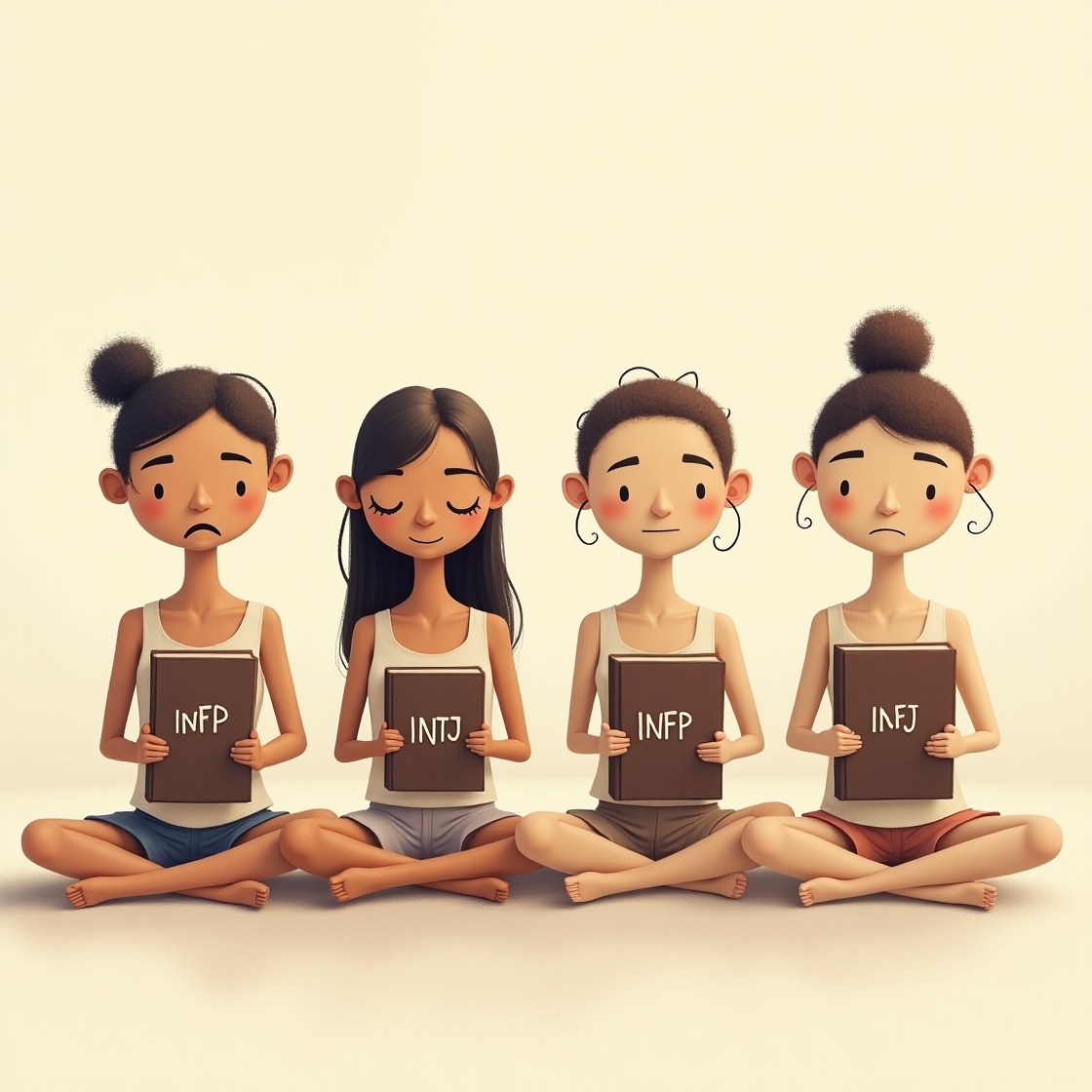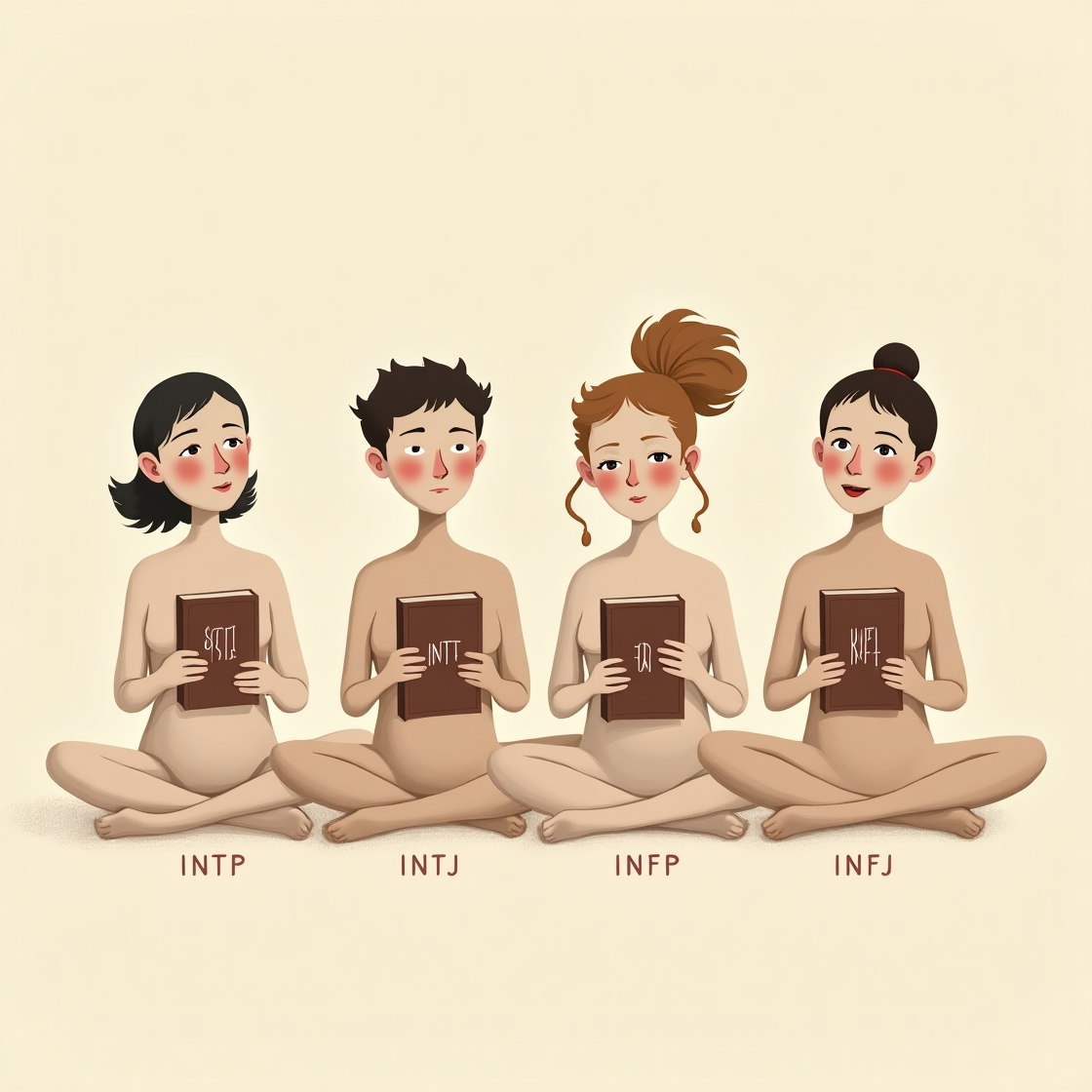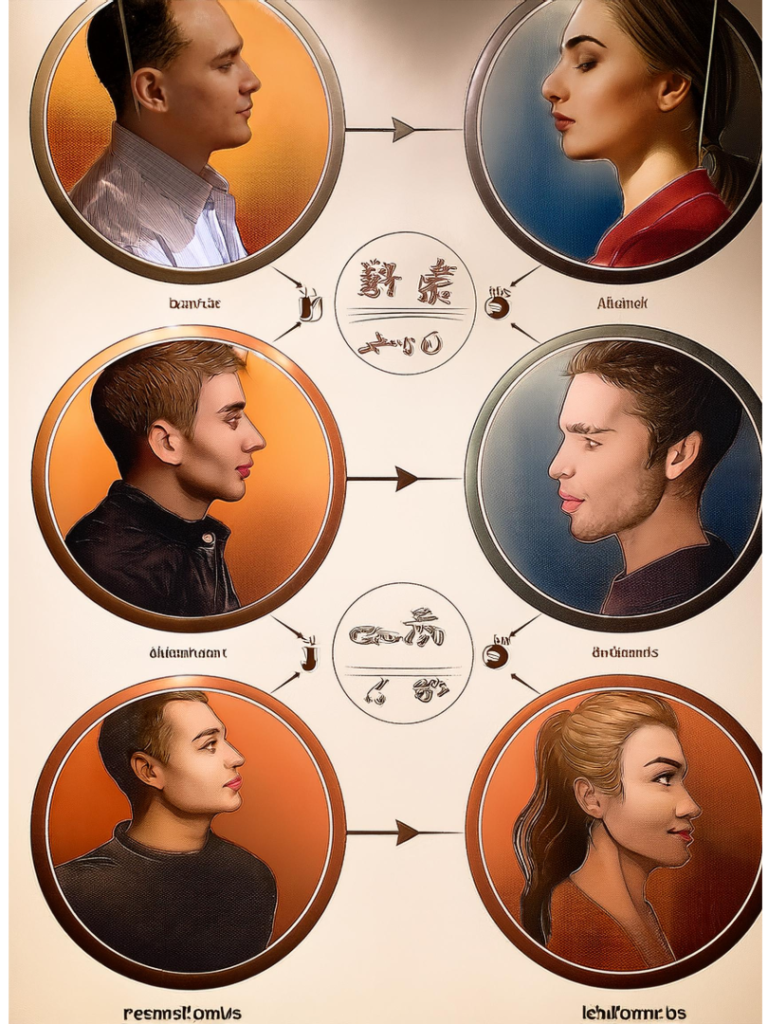|
Hear me out
Getting your Trinity Audio player ready...
|
Navigating the Inner World: How INTP, INTJ, INFP, and INFJ Personalities Address Loneliness
While the experience of loneliness is a universal human emotion, individuals with different personality types, particularly the introspective NF and NT types, tend to experience and address it in distinct ways. INTPs, INTJs, INFPs, and INFJs, sharing the common thread of being intuitive introverts, often grapple with a unique form of loneliness rooted in feeling misunderstood or a lack of deep connection. However, their approaches to coping and finding solace vary based on their dominant cognitive functions.
INTP (The Logician): INTPs, driven by their dominant Introverted Thinking (Ti) and auxiliary Extroverted Intuition (Ne), often experience loneliness not necessarily as a lack of social contact, but as a lack of intellectual connection. They may feel lonely if they cannot find others who stimulate their minds or understand their complex thought processes. Their inferior function, Extroverted Feeling (Fe), can make expressing their emotional needs and connecting on a purely emotional level challenging.
To deal with loneliness, INTPs often retreat further into their internal world, focusing on their interests, learning, and problem-solving. They may find solace in online communities where they can discuss niche topics with like-minded individuals. While they may not actively seek out extensive social interaction, quality interactions with those who appreciate their intellect are highly valued. Developing their Fe can involve consciously practicing expressing their feelings and engaging in more emotionally open conversations, though this is often a growth area.
INTJ (The Architect): INTJs, with dominant Introverted Intuition (Ni) and auxiliary Extroverted Thinking (Te), typically experience loneliness when they lack individuals who can understand their long-term visions and strategic thinking. They value competence and intelligence and may feel isolated if they are surrounded by those they perceive as superficial or lacking depth. Their inferior function, Extroverted Sensing (Se), is less developed, meaning they may not prioritize engaging with the external world in a way that facilitates casual social connections.
INTJs often deal with loneliness by focusing on their goals and projects. They find a sense of purpose and fulfillment in their independent pursuits. When they do seek connection, it is usually with individuals who share their intellectual intensity and forward-thinking perspective. They may engage in discussions or collaborations with those who can keep up with their pace and contribute to their plans. For INTJs, overcoming loneliness often involves finding a select few who can truly comprehend and support their ambitious endeavors.
INFP (The Mediator): INFPs, guided by dominant Introverted Feeling (Fi) and auxiliary Extroverted Intuition (Ne), are highly attuned to their internal values and emotions. Their loneliness often stems from a deep-seated feeling of being misunderstood or not being able to live in alignment with their authentic selves in the presence of others. They crave deep, meaningful connections where they can be fully accepted for who they are. Their tertiary function, Introverted Sensing (Si), can sometimes lead them to dwell on past negative social experiences, exacerbating feelings of isolation.
INFPs typically cope with loneliness by exploring their rich inner world, engaging in creative pursuits like writing, art, or music, and connecting with their values. They may seek out individuals or communities who share their passions and ideals, where they feel safe to express their true selves. While social interaction can be draining, genuine connection is vital for their well-being. They may also find solace in nature or introspective activities that allow them to process their emotions and reconnect with their inner core.
INFJ (The Advocate): INFJs, with dominant Introverted Intuition (Ni) and auxiliary Extroverted Feeling (Fe), often experience a profound sense of loneliness due to their rare perspective and their ability to understand others on a deep level while feeling unseen themselves. They have a strong drive to help others and make a difference, but may struggle to find individuals who truly understand their complex motivations and insights. Their tertiary function, Introverted Thinking (Ti), can lead them to analyze their feelings of loneliness, sometimes over-intellectualizing them.
INFJs often deal with loneliness by focusing on their humanitarian interests and working towards causes they believe in. They may find a sense of connection through helping others, even if they don’t have many close personal relationships. They deeply value authentic connection and may spend a significant amount of time searching for kindred spirits who understand their vision and values. While they are capable of functioning independently, INFJs thrive when they have at least a few individuals with whom they can share their deepest thoughts and feelings and feel truly validated.
In summary, while loneliness can manifest as a feeling of isolation for all these types, their internal landscapes and preferred coping mechanisms differ significantly. For INTPs and INTJs, intellectual connection is paramount, while INFPs and INFJs primarily seek emotional and value-based understanding. All four types, being introverts, require solitude to recharge, but prolonged periods without meaningful connection can lead to feelings of loneliness that they address in ways consistent with their core personality traits.

















